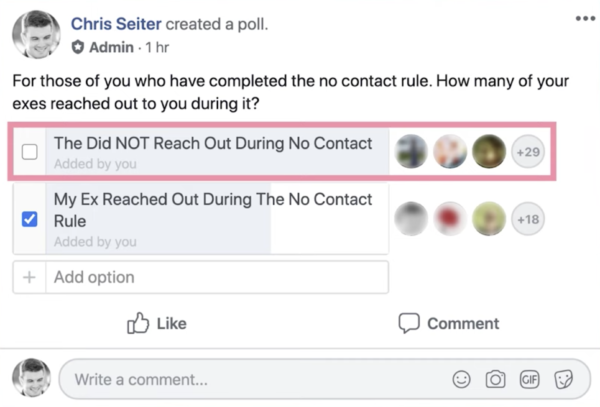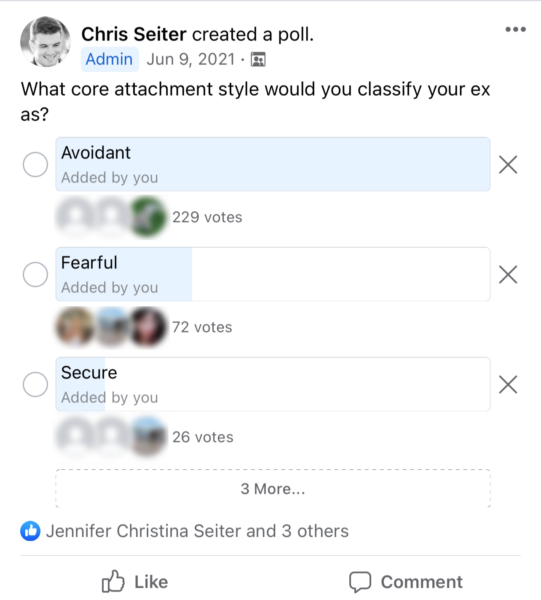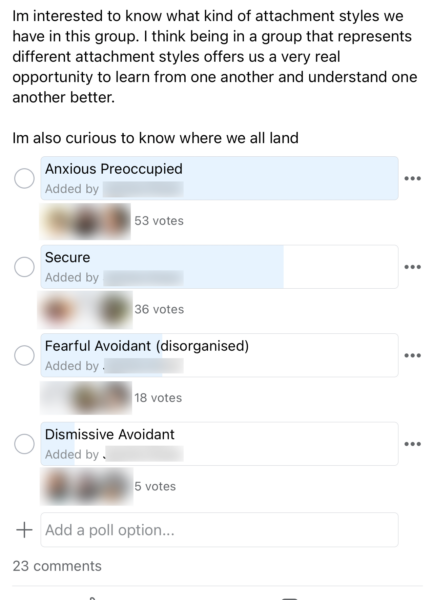Today I’m going to take on one of the most common questions I get asked in my coaching practice, will my avoidant ex reach out to me?
The truth is, we’ve found that most exes who are avoidant will usually not reach out to an ex on their own accord because it usually triggers two things within them; A feeling of trauma and vulnerability that they aren’t comfortable with.
Of course, like all things there is a bit more nuance to it so we’re going to dive in and talk about the following things.
- Why Your Avoidant Ex Probably Won’t Reach Out To You
- Why An Avoidant Ex Usually Doesn’t Want To Be Friends After A Breakup
- Why The Avoidant Prefers Loneliness Over Everything Else
- If You Want To Reach Out To Them You Need To Understand The Nostalgia Window
Let’s begin!

What Are Your Chances of Getting Your Ex Boyfriend Back?
Take the quizWhy Your Avoidant Ex Probably Won’t Reach Out
First things first, let’s make sure we are operating under the same framework here with regards to describing the avoidant.
Our official definition of an avoidant within the confines of Ex Boyfriend Recovery is,
An individual who values independence and autonomy over all else. As a result, they push people away or leave relationships when that individual threatens that independence.
If you want to get really technical we are really only focusing on the “dismissive avoidant” variety of avoidant. Now, we are pretty confident when we say we believe that most avoidants won’t be reaching out to you easily.
We first formed this hypothesis within polls done within our private facebook group. Specifically polls done around the no contact rule,
Think of the no contact rule as the foundational strategy that all breakup situations revolve around.
The no contact rule refers to a period of time where you cut off all conceivable communication with an ex after a breakup. The intent of this tactic should NOT be used to make your ex miss you but instead should be used to rebuild your own life so that you outgrow your ex. By doing this, the no contact rule can have the added benefit of making an ex miss you
Usually this period of time where you are ignoring your ex is around 21-45 days. Now, the thinking for most people is that they implement a no contact rule and it will make their ex want to get back in contact with them more. However, that’s not actually what our research showed.
According to the graphic above, 62% of exes who had the no contact rule implemented on them did not reach out.
Why?
Well, let’s turn to more polls to hopefully explain this phenomenon.
In 2021 I conducted a poll where I asked participants which attachment style they thought their exes were yielded these results,
For those of you who are math people that’s well over 70% of participants.
So, the stars are beginning to align.
Exes who are having the no contact rule done on them are predominantly avoidant which means they aren’t going to reach out to you on their own accord.
This is actually one of the primary reasons that my team and I are so adamant about reaching out first post no contact period because we don’t expect many exes will reach out themselves.
Here’s another interesting factoid you may not know.
An Avoidant Ex Doesn’t Usually Want To Be Friends
To further add more nuance to the mindset of an avoidant I’d like to explore why an avoidant doesn’t usually want to be friends after a breakup. Yet, strangely they can find themselves striking up an arms length relationship with you if you reach out and retain connection with them.
Weird, right?

What Are Your Chances of Getting Your Ex Boyfriend Back?
Take the quizBut psychologically it makes sense if you understand what’s going on underneath.
I’m going to let one of the best avoidant resources in the world take over for this one, Free To Attach,
It’s rare that an avoidant would want to be friends after a breakup. But occasional contact with exes with whom they have a good dynamic (usually this would mean interaction that is light and non-emotionally open), can retain a comforting relationship bond for them, a feeling of genuine connection and support, and much needed boost for the low ego without too much investment or the engulfment of overdependence in the present.
So, a couple of things I’d like to accentuate here.
Good Dynamic = Light and No Emotional Topics
Most of our clients don’t have this type of dynamic with their exes because most of our clients, by their own admission, classify themselves as anxious,
That usually means they can’t help themselves but to bring the relationship up and become extremely emotional about it which in the end just brings that ex right back in the trauma.
For the avoidant the perfect relationship is one where they can retain their independence. They like the no strings attached approach.
The Avoidant Can Actually Prefer Loneliness
My “go to” whenever I start researching avoidants is Free To Attach. Every time I open that website up I’m blown away by how deep it goes into the psychology of attachment styles.
Anyways, when I was trying to figure out what I was going to say in this article something caught my eye,
So subconsciously, space from someone rather than any complicated engagement is always preferred. Even if conflicted or regretting, they often would rather be lonely than admit they might be wrong (stubbornness is another passive-aggressive expression that stems from fear of vulnerability and confronting difficult emotions – one’s own or someone else’s).
You can read this statement a lot of different ways. Clearly the owners of Free To Attach are relating it to stubbornness and how the avoidant doesn’t like to be wrong so they would rather choose to be lonely than face that confrontation.
However, I read it a slightly different way. If we harken everything back to an avoidants core wound of never wanting to lose independence. I think of it as them choose to be alone over engaging in any conversation that can trigger that core wound.
It could be possible that an avoidant is so shell shocked and trained to not have conversations in general that they will never even entertain the idea.
Usually this means that if you ever want to have a conversation with your avoidant ex you need to be the one to reach out and for that you need to understand the nostalgia window.
Understanding The Nostalgia Window
This is a concept I first talked about in this video,
And since this has turned into quite the quote fest let’s go back to old faithful in Free To Attach,
Avoidants are free to long for an ex once that person is unavailable out of the relationship, and typically out of contact so they are untouched by actual engagement and their deactivation systems aren’t triggered
So, what does that mean?
Basically as long as you, the avoidants ex, are out of a relationship and they feel like you’ve moved on from them their longing kicks in.
They start having these feelings of nostalgia.
Now, when does that start happening specifically?
That’s such a unique question because technically it can happen at different times depending on how the avoidant gets triggered and how deep your relationship was with them.
Generally speaking the longer the relationship the longer it takes for that nostalgia to kick in.

What Are Your Chances of Getting Your Ex Boyfriend Back?
Take the quizIn this video I did with Coach Tyler,
We talk a little bit about this concept of when avoidant exes feel nostalgia and he mentioned that it can sometimes take years before they come back into the picture.
That’s how long some extreme cases take.
Of course, we’ve been having some good initial success with 45 days of space. In fact, one of the recommendations with the no contact rule I’ve been thinking about updating is getting rid of the 21 day rule and the 30 day rule because when I look at the data I’m consistently seeing longer no contacts yielding results.
I think there are two reasons for this.
- Most of our clients fail a no contact rule their first time
- Longer periods of no contact give exes more space for them to hit this nostalgia time period
So, in the end it usually boils down to discipline.
Do you submit to fear?
Fear of losing your ex forever.
Fear of them finding someone new.
Fear of the unknown.
Or do you achieve discipline?
You wait long enough to reach out. You actively try to move in a direction so that you are outgrowing your ex and healing from the breakup.
If you can do those things then usually you’ll yield a favorable response from your ex. If you can’t do those things. Well, you’ll probably end up in the exact same spot you are in now.
Confused.
Frustrated.
Angry.
Scared.


